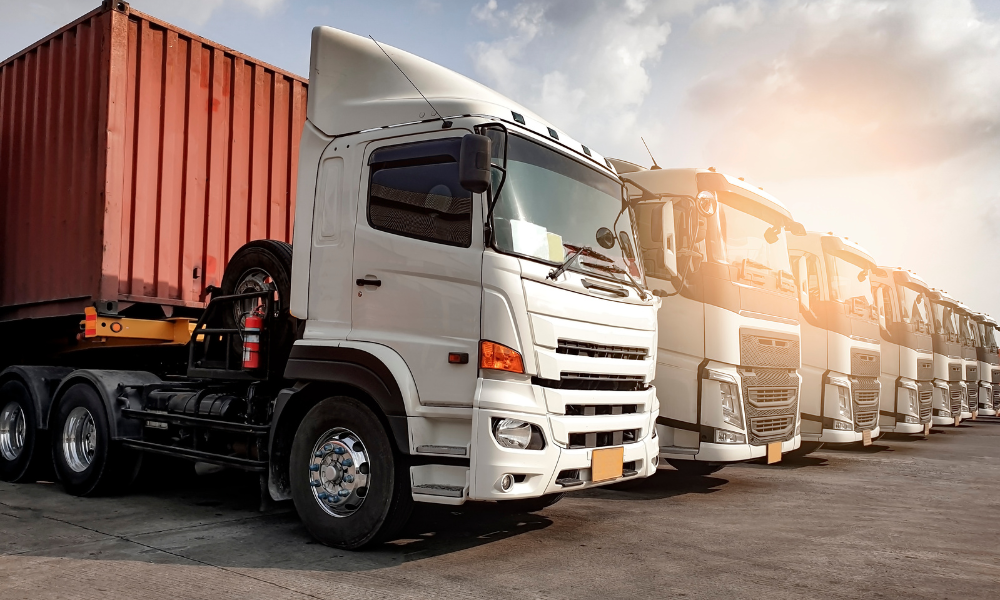Among the struggles in establishing a startup is finding new equipment. Whether you have minimal capital, or disadvantageous credit score, equipment finance for startups can be your best option.
What is equipment finance for startups?
Equipment finance for startups is offered by equipment financing/leasing companies to new businesses or to those that are still low in capital or cashflows.
Whether you have not reached a financing institution’s required credit scores, or have limited assets, you may still be approved for equipment finance or equipment leasing.
Recent Articles
Advantages
Below are some of the advantages when using equipment finance for startups compared to traditional forms of lending and acquiring equipment:
- Cash Flow: you can preserve your limited cash flow and use it for other purposes. Business equipment is typically expensive; your cash flow is not disturbed because you won’t have to spend large amounts in just one transaction.
- Tax benefits: under Canada’s taxation, you could claim certain tax credits or tax advantages, such as Input Tax Credits by deducting the total lease cost as an operating expense (rather than as capital expenses).
- Flexibility: depending on the financial institution that you’re dealing with, equipment finance for startups is more flexible than traditional loans and leases. Your lender may offer you various alternatives that fit your specific needs and circumstances.
Required documents
While equipment finance for startups offers various advantages, you must still prepare some documents as required by your equipment finance/leasing company.
Some of these documents are:
- Credit score: only when applicable, your credit score may be inquired by your lender. However, some institutions may forgo this requirement if you agree to certain terms and conditions, or you meet other criteria.
- Financial records: you must prepare financial records to show that you can pay for the financed equipment. If you’re financially struggling, as shown in your records, you can still negotiate with your lender for other conditions so that you can still be approved.
- Business plan: since startups have little financial information, lenders may require a business plan where you can show your business’s profitability and its trajectory. This is also to convince the financing company that you’re committed to paying off your financed or leased equipment.
The video below will you the different types of equipment that can be easily financed through equipment finance for startups, and the most common way to acquire equipment financing:
Continue reading below to know more about the different types of financing that you can use. You can also consult with an asset equipment finance/leasing lawyer in your area. If you’re from Calgary or nearby areas, you can reach out to any of the Lexpert-Ranked best asset equipment finance/leasing lawyers in Alberta.
Which type of finance should be used to purchase new machines and equipment?
Equipment finance or equipment leasing is a type of financing used by businesses or business-owners to purchase new machines and equipment.
It is very convenient, especially for startups that are low on cash and don’t have an established credit score yet.
To help you decide on a type of financing for your business, below are some discussions on how it works and its differences.
Equipment Financing vs. Equipment Leasing
Across the industry, “equipment financing” is sometimes used as the general term for both financing and leasing.
Although the terms “equipment leasing” may refer to “equipment financing” and vice versa, these two terms are different in the way they work:
- Equipment Financing: you are loaned the amount that you can use to directly buy the equipment you need. The amount loaned with additional interest will be paid over an agreed period. It is also called “equipment loan” by other financing institutions.
- Equipment Leasing: a financial institution buys the equipment you need, and leases or rents out this equipment to you. You will be paying the equipment’s purchase price plus additional interest over an agreed period.
While both are great ways for equipment finance for startups, consider these factors in deciding whether to use equipment financing or equipment leasing:
- Ownership:
- Financing: you have ownership of the equipment at the start.
- Leasing: the equipment is owned by the financing institution subject to transfer of ownership upon the end of the lease.
- Payments:
- Financing: you only make monthly payments (capital plus interest) according to the contract.
- Leasing: in addition to the monthly payments, you may have to make a lump sum payment for the purchase of transfer of the equipment’s ownership.
- Repairs and maintenance:
- Financing: since you have ownership of the equipment, you’re responsible for any of its repairs and maintenance.
- Leasing: the equipment leasing company is responsible for repairs and maintenance.
- Renewal after full payment:
- Financing: renewal means that you can purchase another equipment.
- Leasing: renewal means that you either return the equipment to the lender and acquire newer equipment, or purchase the equipment you leased at the end of the term.
Both are contracts in their very nature (e.g., loan contract or lease contract). It’s important to consult with an asset equipment finance/leasing lawyer before signing any contract.
What credit score is needed for equipment finance?
Equipment finance for startups, or even equipment leasing, may be difficult. This is because companies offering financing or leasing tend to rely on credit scores.
Usually, your credit score must range from 600 to 650 to be eligible for equipment finance/leasing. Some companies may offer lower credit scores.
To address this problem, and to still provide services to starting businesses, companies now offer equipment finance for new business ventures. In doing so, they may have additional requirements or conditions. If you have a low credit score, equipment finance for bad credit might be an option.
Read about the leading equipment leasing companies in Canada and the services they offer.
Ready to use equipment finance for startups? Before doing so, consult with the best asset equipment finance/leasing lawyers in Canada.
Related Article:





